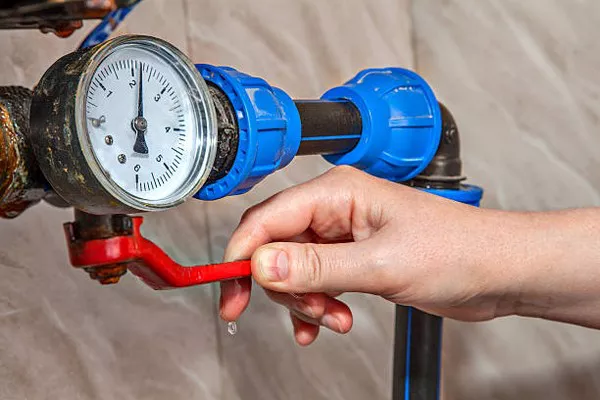A hot water pressure washer is a specialized cleaning device that utilizes high-pressure water, heated to a specific temperature, to remove dirt, grease, oil, and other stubborn contaminants from surfaces. Unlike standard cold water pressure washers, hot water pressure washers enhance the cleaning process by utilizing heat to break down and dissolve tough residues, making them highly effective for industrial, commercial, and heavy-duty applications.
How Does a Hot Water Pressure Washer Work?
A hot water pressure washer operates by combining three fundamental components: pressure, heat, and detergent. The working principle involves several key parts:
Water Pump and Motor – The motor (electric, gasoline, or diesel-powered) drives the high-pressure pump, drawing water from a supply source and increasing its pressure.
Burner System – A heating coil or burner (powered by diesel, kerosene, natural gas, or propane) heats the pressurized water to a high temperature.
High-Pressure Hose and Nozzle – The heated, high-pressure water is delivered through a reinforced hose and exits via a nozzle, which determines the spray pattern and pressure intensity.
Detergent Injection System – Many hot water pressure washers include a detergent or soap injection system to further enhance cleaning efficiency.
Key Components of a Hot Water Pressure Washer
Pump: Pressurizes the water before heating.
Burner Assembly: Heats the pressurized water.
Heating Coil: Transfers heat to the water as it passes through.
Nozzle: Controls the spray pattern and pressure output.
Trigger Gun: Allows the operator to control water flow.
Detergent Tank: Stores and mixes cleaning agents with water for enhanced performance.
Frame and Wheels: Provide portability for easy maneuvering.
Benefits of Hot Water Pressure Washers
Superior Cleaning Power: The combination of heat and pressure helps break down oils, grease, and heavy contaminants more effectively than cold water pressure washers.
Faster Cleaning Process: Hot water cuts cleaning time significantly, increasing efficiency and reducing labor costs.
Eliminates Bacteria and Germs: The high temperature helps kill bacteria, making it suitable for sanitation purposes.
Better for Grease and Oil Removal: Heat softens grease and oil, making it easier to wash away compared to cold water pressure washers.
Reduces Need for Harsh Chemicals: Many cleaning tasks require less detergent or chemical use when using hot water, making it an environmentally friendly option.
Applications of Hot Water Pressure Washers
Hot water pressure washers are widely used in various industries due to their ability to remove heavy grime and contaminants efficiently. Common applications include:
Automotive Industry: Cleaning vehicle engines, parts, and exteriors to remove grease, oil, and dirt.
Agriculture: Washing farm equipment, barns, and livestock areas to maintain hygiene.
Industrial Facilities: Degreasing machinery, conveyor belts, and workshop floors.
Construction: Removing mud, cement, and paint residues from equipment and surfaces.
Food Processing Plants: Ensuring hygiene and sanitation by cleaning surfaces and equipment.
Fleet Maintenance: Keeping trucks, trailers, and buses free of road grime and contaminants.
Factors to Consider When Choosing a Hot Water Pressure Washer
Power Source: Choose between electric, gas, or diesel models depending on availability and mobility needs.
Pressure and Flow Rate: Measured in PSI (pounds per square inch) and GPM (gallons per minute), these determine cleaning efficiency.
Burner Fuel Type: Diesel, kerosene, propane, or natural gas options should be selected based on operational convenience and cost.
Portability: Consider whether a stationary or portable unit best suits your needs.
Durability: Opt for high-quality construction materials to withstand demanding environments.
Safety Features: Look for features like automatic shut-off, thermal overload protection, and pressure relief valves.
Maintenance and Safety Tips
Proper maintenance ensures a long-lasting and efficient hot water pressure washer. Here are essential maintenance and safety tips:
- Regularly check fuel levels (for burner systems) and refill when necessary.
- Inspect hoses and connections for leaks or wear and replace damaged components.
- Clean or replace nozzles to prevent clogging and ensure consistent performance.
- Flush the system with clean water after using detergent to prevent buildup.
- Store properly in a dry and secure area when not in use.
- Follow manufacturer guidelines for operating temperature and fuel use.
- Wear appropriate protective gear (gloves, goggles, and boots) when operating the washer.
- Never point the spray nozzle at people or animals to avoid injury.
Conclusion
Hot water pressure washers are powerful and efficient cleaning tools designed for demanding industrial and commercial applications. Their ability to use heated water significantly improves cleaning performance, reduces cleaning time, and enhances sanitation. By understanding their working principles, benefits, and applications, users can choose the right model to meet their specific cleaning needs while ensuring safety and proper maintenance.

